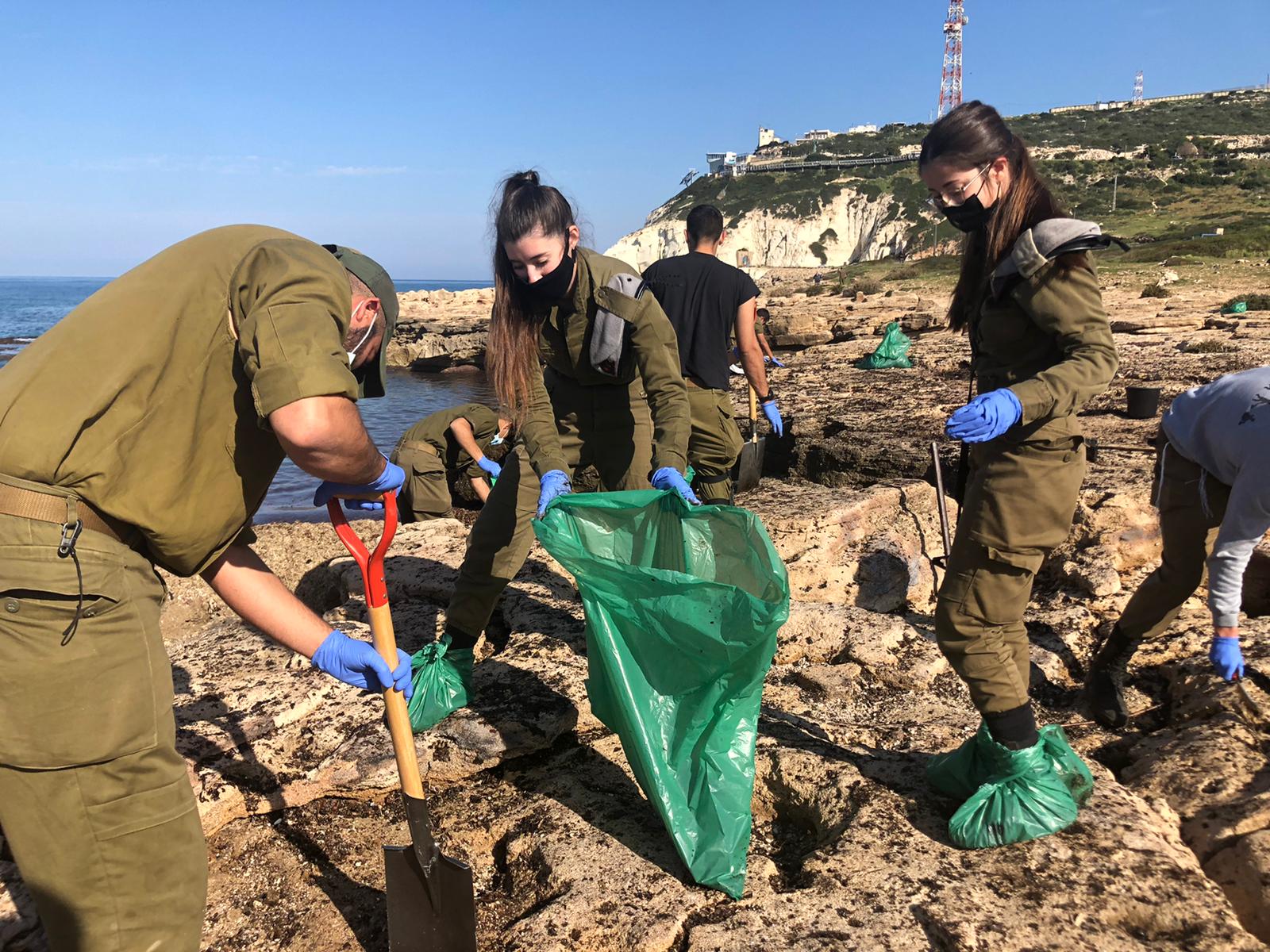Oil Spill Causes Ecological Disaster Along Israel’s Coast
(February 2021)

Lloyd’s List, a leading international shipping journal, confirmed that an Iranian tanker carrying 90,000 tons of crude oil from Iran to Syria deliberately spilled oil near Israel’s coast creating one of the greatest ecological disasters in Israel’s history. Israel’s Environmental Protection Minister, Gila Gamliel, called it an act of “eco-terrorism.”
Stormy weather in the Mediterranean washed huge quantities of tar onto approximately 100 miles of Israel’s coastline stretching from Ashkelon to Rosh Hanikra forcing authorities to close the beaches.
“The beach pollution that we see today from Nitzanim in the South to Rosh Hanikra in the North, and which was caused by yesterday’s storm, is one of the most dire we’ve ever seen in Israel,” said Nature and Parks Authority Director-General Shaul Goldstein.
 |
The country’s desalination plants, which provide around 75 percent of the nation’s drinking water, were unaffected. Many animals were found dead on the shore, including a whale calf on Nitzanim Beach. Other sea creatures were covered in tar. It is too early to assess the impact on fish.
Ruth Yahel, the Israel Nature and Parks Authority’s marine ecologist, said that only five to ten percent of creatures living on rocks and in tide pools would survive having the tar scraped off them. “The greatest fear is that there is a lot more tar in the sea right now that is poisoning wildlife, and still hasn’t reached us,” stated Dor Adelist, a marine scientist from the University of Haifa.
Thousands of IDF soldiers were being assigned to the cleanup effort while thousands more Israelis were volunteering to help. Some of the volunteers became ill and had to be hospitalized after inhaling toxic fumes.
The Nature and Parks Authority requested that volunteers interested in helping clean the beaches sign up to receive equipment and waste-disposal training. “Cleaning requires the use of appropriate protective equipment in order to maintain health and orderly evacuation to a suitable site,” the authority announced.
The disaster raised questions about the country’s planning for ecological disasters. Several years earlier, the government was supposed to acquire all the equipment and sailing vessels it needed to prevent oil contaminations at sea. Plans were shelved, however, when no budget was approved. Now, the government will provide emergency funding for beach rehabilitation.
Sources: Idan Zonshine, “Toxic tar fumes force volunteers to evacuate while cleaning beaches,” Jerusalem Post, (February 20, 2021).
Idan Zonshine, “Wildlife Hospital cleans, treats animals after ecological disaster – Watch,” Jerusalem Post, (February 21, 2021).
“Thousands of IDF troops to assist in cleanup of disastrous tar spill along coast,” Times of Israel, (February 21, 2021).
Sue Surkes, “Tarred and shuttered: Anatomy of the oil disaster that closed Israel’s beaches,” Times of Israel, (February 22, 2021).
Lahav Harkov, “Iranian tanker spilled oil in Israeli waters, leading journal confirms,” Jerusalem Post, (March 8, 2021).
Photos: Volunteers on beach By Hanay - Own work, CC BY-SA 3.0 via Wikimedia Commons.
IDF Soldiers By IDF Spokesperson's Unit, CC BY-SA 3.0 via Wikimedia Commons.


